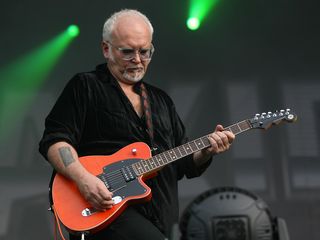
Reeves Gabrels picks 10 essential guitar albums
For Reeves Gabrels, playing the guitar is an exacting undertaking, and so it should come as no surprise that he set about compiling his list of 10 essential guitar albums with the same amount of painstaking consideration. "Throughout the last few days, my choices would pop into my head, and I’d go through them, adding some, taking some out," he says. "I’d written about seven different lists until I realized that I had to be somewhat savage about the criteria."
The versatile, adventurous Cure axeman, who first came to prominence as a member of early '90s alternative rock band Tin Machine, decided that the albums should be chosen with no regard for songwriting. "Because then you're really looking at 'great albums' as opposed to 'great guitar albums," he explains. "Which is not to say that any of these records don’t have great songs on them, because they do. But I thought to myself, ‘How many of them have guitar solos that I can sing in my head?’ These are things that are in my subconscious every time I take a solo, or anytime I play guitar."
Next came an even tougher order of business: Gabrels removed any records made by artists whom he's recorded with or played with for any period of time. "That means no David Bowie, no Cure and so on," he says. "The Stones aren’t on the list, Jagger’s not on; no Paul Rodgers means no Free, which eliminates Paul Kossoff – this was really difficult."
And there were a few stone-cold classics that didn't make the cut, either, such as The Jimi Hendrix Experience's Are You Experienced and Led Zeppelin IV. “I tried to color outside the lines a little bit," Gabrels notes. "Everybody mentions those ones, and a few more, so I went to some other places.”
On the following pages, Gabrels runs down his choices alphabetically by artist, although he is quick to stress that, were he ranking the albums in order of greatness, Lou Reed's Rock 'N' Roll Animal would reign supreme. "That one is just it for me," he says. "It's so impossibly good in so many ways. But all of these albums are special. Each record here opened up a door into a very large building of guitar playing for me."
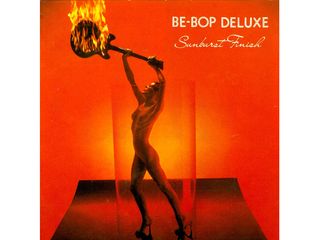
Be Bop Deluxe - Sunburst Finish (1976)
“Crying To The Sky should be in everybody’s list of Top 10 Guitar Songs. It’s a little derivative of Hendrix, but it’s still so good in many enormous ways. Bill Nelson is one of those guys who has a view that there’s more to guitar playing than the pentatonic blues scale or the major scale.
“His sense of harmony and production for guitar parallels or rivals Jimmy Page. He hasn’t gotten the same kind of acclaim that Page has, obviously, but a lot of guitar players do know that he’s broken real ground.”
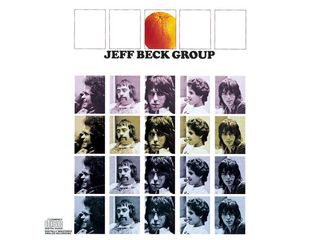
The Jeff Beck Group - Jeff Beck Group (1972)
“Wired was a pretty big influence, mainly because of Jan Hammer. See, I thought his licks were being played by Beck, so I figured out all of his parts before I found out who was doing what. I had a pretty crappy stereo at the time – what can I say?
“This album is exceptional. Going Down is great, and so is Tonight I’ll Be Staying Here With You by Dylan – Beck plays with that song like a cat with a ball of yarn; he entertains himself. Because it’s rooted in the blues and R&B, it’s not so much him going, ‘OK, here’s where I play the fast part, and here’s the melody, and now I have to make a funny sound.’ It’s more like he’s guesting on his own record.
“They cut the record in Memphis, so Jeff might have been out of his element in a way. Steve Cropper is on a track, and he sounds fantastic. It’s a looser thing than Jeff did before. Using slide with a wah? I’d never heard anybody do that before. The album shows off the best elements of Beck’s playfulness and his randomness. It’ll never be that way again.”
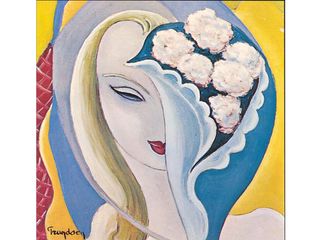
Derek And The Dominos - Layla And Other Assorted Love Songs (1970)
“Two guitar players with two completely different styles inside this subgenre of rock. Oddly, enough, even though Layla is the lynchpin, and it’s the title of the record, to me it’s the least-important song of the whole bunch. Everybody else focuses on that song, but there’s a lot to this record that doesn’t get talked about.
Eric Clapton’s playing is pretty remarkable here – incredibly lyrical but full of angst. And Duane Allman always had this cool sense of forward velocity. You can hear it on Why Does Love Got To Be So Sad?, where he’s not even playing slide but just regular old guitar.
“It’s that forward momentum I find pretty fascinating. It’s like if you were driving 120 miles per hour in a car: the more you can cover the distance between where you are and what you can see to make judgments, the faster and faster the turns keep coming. I get that sense from Duane’s playing.
“Clapton’s solo on Bell-Bottomed Blues is really beautiful, and I can hear the influence of Robbie Robertson in what he does. It’s one of the few solos I can play note for note. I was never much for learning other people’s solos, but I made an exception in this case.”
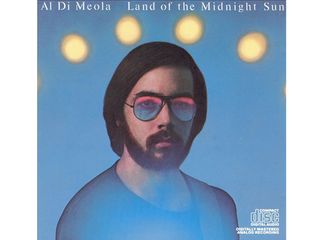
Al Di Meola - Land Of The Midnight Sun (1976)
“I went off Al relatively fast. Elegant Gypsy was a really good album, but Casino was kind of where it ended for me. Land Of The Midnight Sun, his first record, really stands out. No one else at this time, other than John McLaughlin, had the same kind of technique.
“As a testosterone-filled 17 year old, I’d come home and put on this record to bust my own chops, trying to keep up, trying to play like that. The palm-muted thing that Di Meola did found its way into so many things, including metal. I know how much it affects the way my hand rests on the bridge of a Les Paul-style guitar.
“He was pretty fastened to the mode of the song. He didn’t stray outside the harmony – he stayed within. But he would also play these incredibly fast patterns and move them up the neck chromatically. To me, that was a revelation. Whenever I did it, it would really impress the other guitar players – or it made them hate me. That’s kind of the story of my life.”
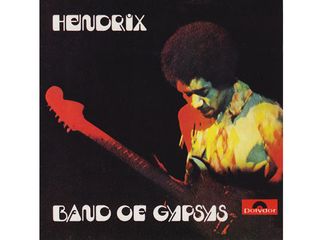
Jimi Hendrix - Band Of Gypsys (1970)
“This album should be on the list if for no other reason than Machine Gun. The more recent edition of the record has the second show version, and while the overall performance isn’t as good, Hendrix, during his solo, does something that became the domain of the NIN-industrial thing in that he played power chords through an Octavia, so you had this heavy intermodulation. If that version had come out first, every Stevie Ray Vaughan clone would have sounded industrial.
“To go back to the original version, however, it’s the painter and the picture, which is the soundtrack of the era. Band Of Gypsys sounded like the way the world felt. The turmoil of the times was in Hendrix's playing. His control as a guitar player and his ability to harness that sound makes this my favorite record of his. A lot of people think that he was at his best in the studio, but this album disproves that notion.”
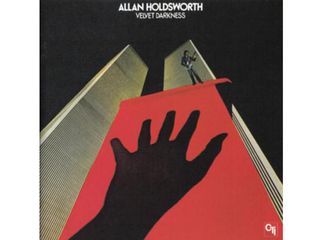
Allan Holdsworth - Velvet Darkness (1976)
“This might not be a record that Allan really likes because it’s very raw and uncontrolled. It came out on CTI, and it’s almost the same band that’s on the Tony Williams Lifetime album, which was the first time that Allan popped into view in America.
“It was a game-changer in that it was the antithesis of Di Meola; it’s modal, with lots of chromaticism, and it’s legato versus every note being picked. It’s more Coltrane-ish and less constricted.
“Nobody played like that, to my knowledge. The difference between the first Van Halen record and the second one is easily explainable – it's because Eddie had heard Holdsworth. Nobody can tell me anything different.”

Humble Pie - Performance: Rockin' The Fillmore (1971)
“At one time, I assumed that all of the lead stuff was played by Peter Frampton, but I found out that a fair amount of it was Steve Marriot, especially on the song I Walk On Gilded Splinters. Marriot has a rougher, more raw tone than Frampton. The two of them together blew my mind.
“The guitars on Four Day Creep – those riffs are like Count Basie and Duke Ellington lines. Frampton and Marriot were copping that sort of thing and putting it on electric guitars with fairly rude distortion, and it was glorious.
“Frampton was doing Kenny Burrell-style licks at a time when everybody else was Albert King or BB King or Freddie King. I asked him about it, and he said, ‘Well, if those guys are valid, why isn’t somebody else?’ That really opened my ears up to other possibilities, stuff that might have been unorthodox but wound up sounding really great.
“Even when Frampton re-enters on I Don’t Need No Doctor, which is probably the lamest song on the record – it’s that ‘put-your-hands-in-the-air’ thing that we’ve heard so much – he has that forward-push approach that Duane Allman had. It rocked, but there’s a phrasing and a sensibility that was similar to some of the guys playing fusion and prog, like Steve Howe.”
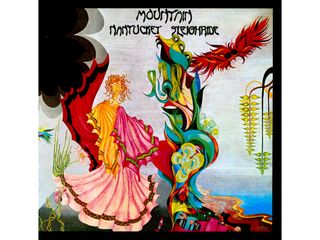
Mountain - Nantucket Sleighride (1971)
“Travellin’ In The Dark, Tired Angels – I mean, it’s Leslie West! It really requires no explanation. And it’s also at the point where he was being tempered by the fact that there were songs, and his guitar playing was molded by these songs in a very special way.
“I can’t say enough about that point: Listening to Leslie here is like watching a great actor who is cast in a really well-directed movie; his best shit didn’t wind up on the cutting-room floor. When you have that kind of setup and circumstances – the right player with the right songs – you’re bound to have something superlative.”
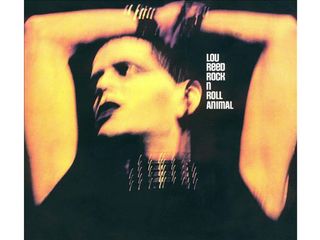
Lou Reed - Rock 'N' Roll Animal (1974)
“If there were one album that I would take to a desert island, it would have to be this one. I own multiple copies of it on CD, vinyl and cassette, and if I could find it on something else, I’d own that, too.
“Actually, I have five CD copies of it, and there are even several that I haven’t yet opened because I didn’t like the way the digital remastering sounded, so I bought the old, first-generation CD versions of it. So this is the one album that’s actually at the top of the list, and everything else is way down below it.
“Dick Wagner and Steve Hunter are the guitarists, and they’re truly special. Every time I listen to this album, I hear a new nuances and harmonies. The poetry in their playing absolutely kills me. Even in the context of fairly savage Detroit kind-of rock, there’s such lyricism in the guitar work. But to this day, I can’t tell the two guys apart. I’ve spoken to Dick Wagner about it, and he didn’t shed any light on it. Oh, well.
“It’s an important record, the epitome of the great rock ‘n’ roll album, and for me, it’s the connector of The Allman Brothers and Derek And The Dominos and glam. While I liked the glam stuff, with the exception of Ronson’s playing, there wasn’t a lot of technique on display – there were no killer guitar players. This album pulled it all together. Glam kids and the flannel-shirt crowd for the Allman Brothers could like it.”
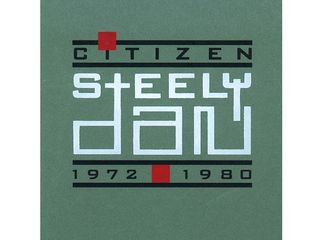
Steely Dan - Citizen Steely Dan: 1972-1980 (1993)
“If I couldn’t have picked Citizen Dan, I would have picked Katy Lied. Larry Carlton’s concepts and his actual literal playing changed the way I approach the guitar – I use that stuff all the time. Anytime I improvise, there’s Carlton in there.
“Steely Dan also used guys like Elliot Randall and Rick Derringer, whose parts were appropriate to the songs, but they sounded spontaneous and didn’t feel overly tweaked. It’s like the Duke Ellington thing of writing the song for the soloist.
“If there’s one album that I feel sums up the last quarter century of the last century for guitar, it’s this box set. Rick Derringer, Elliot Randall, Denny Dias, Larry Carlton, Skunk Baxter, Walter Becker – the cast goes on, and they’re all amazing.”

Joe is a freelance journalist who has, over the past few decades, interviewed hundreds of guitarists for Guitar World, Guitar Player, MusicRadar and Classic Rock. He is also a former editor of Guitar World, contributing writer for Guitar Aficionado and VP of A&R for Island Records. He’s an enthusiastic guitarist, but he’s nowhere near the likes of the people he interviews. Surprisingly, his skills are more suited to the drums. If you need a drummer for your Beatles tribute band, look him up.

"Coated with analogue warmth, and many a chunky nugget for the keen and avid listener to find": Röyksopp get even more Mysterious with new surprise reworking

“It didn’t even represent what we were doing. Even the guitar solo has no business being in that song”: Gwen Stefani on the No Doubt song that “changed everything” after it became their biggest hit

"Coated with analogue warmth, and many a chunky nugget for the keen and avid listener to find": Röyksopp get even more Mysterious with new surprise reworking

“It didn’t even represent what we were doing. Even the guitar solo has no business being in that song”: Gwen Stefani on the No Doubt song that “changed everything” after it became their biggest hit
Most Popular







